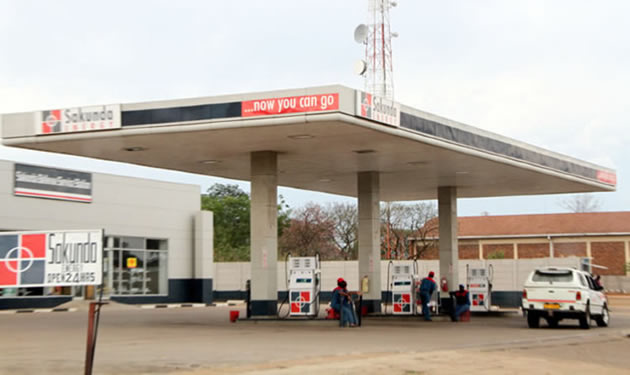Fuel industry: The great betrayal of indigenisation


The rise of Sakunda Energy was a result of the IPGZ’s push for the indigenisation of the fuel industry
Robert Zhuwao Special Correspondent
Events in the fuel industry where foreign companies have slowly but surely swallowed local players are heartbreaking for me and other like-minded people who fought the battle for indigenisation of the sector in 2004.
Departed colleagues namely, Israel Magwenzi, Cain Usenga, Christopher Pasipamire and Gordon Musarira must be turning in their graves.
Unsung and unrecognised people who have served Zimbabwe are many. Amongst them are indigenous fuel companies that operated from 2002 until the introduction of the multi-currency system in 2009.
By whatever means necessary, these companies ensured that there was fuel for industry, transport, hospitals, farmers and also fuel stations.
Sometime in 2003, when a meeting for the fuel industry was called at Caltex House by the then only fuel association called Petroleum Marketers of Zimbabwe (PMZ), the venue was filled to capacity with various representatives of about 30 or so fuel companies.
At the time, the big multinational companies were not bringing in fuel into the country saying they wanted Government to avail foreign currency for fuel imports despite the fact that they had big enough balance sheets to keep Zimbabwe fuelled.
PMZ consisted of fuel multinational companies, BP, Shell, Mobil, Caltex, Total (whom we christened the “Big 5”), Engen and three indigenous companies (whom we christened “The Three Stooges), who had no voice in the association.
Chairing the meeting was the late John Makova (Exor).
The meeting ended prematurely after my having noted the condescending manner in which we were being addressed.
I walked out of the venue.
As I walked I muttered that maybe what was required was an indigenous home-based association.
Unbeknown to me, I had said it loud enough for other people to hear.
When I got outside the building, I realised that all the non-members had walked out of the meeting.
So out of that walkout, the Indigenous Petroleum Group of Zimbabwe was born.
Membership rose to 180 in three months out of an industry with 200 companies.
After an election that saw me being elected as chairman in 2004, IPGZ set out to fully indigenise the fuel sector. We made presentations supported with statistical information to the Ministry of Energy, whilst arguing our relevance.
We were able to convince Minister July Moyo to assist indigenous companies secure foreign currency.
With time, we were able to convince the ministry to support indigenisation of the sector.
The Big 5 had been retarding the economy and the country. It was folly to allow a critical area such as fuel retailing to be subservient to a foreign giant.
Long winding queues of vehicles waiting for fuel were eliminated through the intervention of indigenous fuel companies.
With PMZ against the ropes, the “Three Stooges” trooped in seeking membership to IPGZ where we accepted them.
The biggest blunder made by my executive back then was agreeing to merge associations with the very companies we were fighting.
Reasoning then was to create one solid united industry as directed by the governing ministry.
We were now sitting on the same board with our foes.
Research had found that there were enough fuel sites, hence there was no need to continue investing in new infrastructure.
The initial plan was that each registered member would negotiate for takeover of filling stations from the Big 5, re-brand them whilst we help with capacitating them.
Having a single procurement structure would enable for lower cost pricing basing on economies of scale from supplier.
I left the fuel industry after the completion of what I thought was the economic empowerment of the industry and Zimbabwe had introduced multi-currencies so importation of the product was simpler.
There was initial jubilation at the rise of Redan and Sakunda as not only had they been members of IPGZ, they were indigenous.
I remained apprehensive in jubilation as I preferred a spread of different players to mitigate the risk of poor product supply or distribution.
Looking back at the fuel industry, I wonder whether l did not waste my time and energy fighting for indigenisation of a sector that has now sold out. The companies that had represented the flagship of indigenisation in the fuel sector are all defunct while others have been swallowed by foreign companies like Puma.
Fuel is critical to the stability of any country. The fuel sector needs distribution and forecourt vending to be handled by local companies.
Lessons need to be learnt from past experiences. A local entity will never turn off their taps on their own. The availability of fuel is critical to any economy.
What good is indigenisation if we are going to be retrogressive and selling out?
When we fought for liberation of the fuel sector, the reasoning was that dividends from such industries remain inland for the benefit of the Zimbabwean economy.
It gets me wondering whether we are ready for economic empowerment or we just want something we can’t sustain.
Even more baffling is how our Government allows retrogressive moves in a sector that had been indigenised.
The writer is the former president of IPGZ and national vice president of the National Business Council of Zimbabwe.









Comments